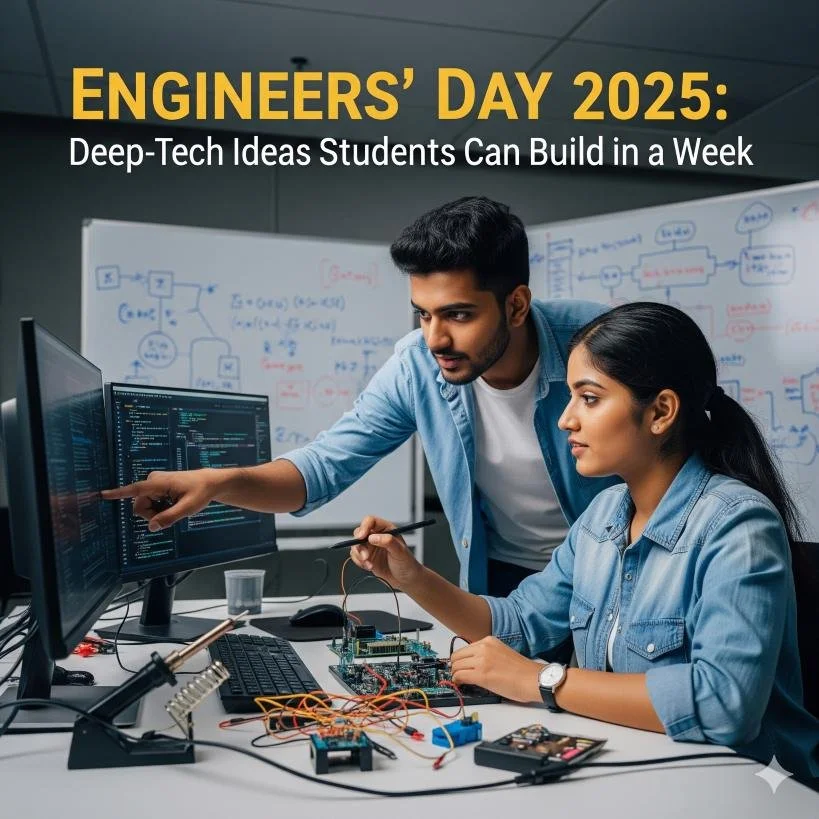
Master of Computer Application (MCA)
Quick links
Scholarship
Fees
Placement
Overview
JIET Universe is proud to offer an MCA (Master of Computer Applications) program with specializations in Full Stack Development and Artificial Intelligence & Machine Learning. Our program stands out with its strong industry connect, providing students with valuable real-time internships in reputed organizations, along with a stipend. We prioritize on-the-job training and learning, ensuring that students gain practical experience while studying. With an excellent academic curriculum that remains flexible to keep pace with the ever-changing field of computer applications, our program equips students with the skills and expertise they need for successful careers. Join us to embark on a comprehensive educational journey that combines theoretical knowledge with practical industry exposure.
Course Highlights
| Course level | Post Graduate |
|---|---|
| Duration | 2 Years |
| Average Salary Package | INR 7,00,000 |
| Examination Type | Semester System |
| Program Eligibility | A bachelor’s degree in relevant branch |
| Top Recruiting Organizations | Infosys, TCS, Capgemini, Wipro, Accenture, Tekion,& many more |
MCA Placements & Training
Airbus
Tekion
The Hacktivists
Diptab Ventures
synopsys
Publicis Sapient
BYJU's
Optum
Infosys
Skolar
Celebal Technology
UltraTech
ISRO
DRDO
IIT Jodhpur
CADC
Tata motors
NBC
All India
CEERI pilani
About MCA
+ VISION
The department of Computer Applications aims at being recognized globally as a promoter of computer technology and its application by encouraging all modern endeavors in academia, learning innovations, socially relevant research, and problem-solving
+ MISSION
- M1: To develop competent professionals with problem-solving and analytical skills.
- M2: To provide excellent undergraduate, postgraduate, and doctoral education for a productive career in industry, academia, and entrepreneurship.
- M3: To enhance theoretical, experimental, and applied skills of faculty and student in computer science through nationally and internationally recognized and socially relevant research.
- M4: To continuously improve academic infrastructure and create an environment that teaches the ethical values and skills required for lifelong learning.
+ PROGRAM EDUCATIONAL OBJECTIVES (PEOs)
- PEO 1 : To provide an in-depth understanding of the fundamentals of Computer Science and create a foundation for lifelong learning to facilitate a progressive career in the IT Industry, as an entrepreneur and in pursuit of higher studies.
- PEO 2: To equip the students with technical and analytical skills to develop innovative solutions to complex real-life problems using existing and novel technologies.
- PEO 3 : To equip the students with good communication and interpersonal skills, inter-disciplinary teamwork, and leadership skills to enable them to fulfill professional responsibilities.
- PEO 4 : To expose them to various contemporary issues that will enable them to become ethical and responsible towards themselves, co-workers, society, and the nation.
+ PROGRAM SPECIFIC OUTCOMES (PSO)
- PSO 1: Academic Scholars will be proficient in fundamental principles and methods of Computer Science, Mathematical and Scientific reasoning and will able to:
a) Apply fundamental concepts of integration, differentiation, vector calculus, probability & statistics, and discrete mathematics.
b) Design, create & evaluate algorithms and data structures appropriate to specific problems. - PSO 2: Academic Scholars will possess in-depth knowledge of various components of hardware and system software. The students will have thorough understanding of:
a) Architecture of computer system and functionality of various units.
b) Role of operating system in managing the hardware units.
c) Computer networks and security related issues. - PSO 3: Academic Scholars will be competent in Object Oriented Programming Languages and possess basic knowledge of several other programming languages.
- PSO 4: Academic Scholars will be able to exhibit knowledge of software engineering practices and project management and can work as a team leader/team member in developing software of multidisciplinary nature.
- PSO 5: Academic Scholars will possess ability to explore emerging technologies and provide innovative solutions to real time problems within constraints such as financial, environmental, social and ethical
+ PROGRAM OUTCOMES (POs)
Graduates will be able to:
- PO 1: Computing Knowledge Apply knowledge of mathematics, computer science, software engineering principles, and specialized areas of computer applications to the analysis and solution of complex computational problems.
- PO 2: Problem Analysis Identify, formulate, review relevant literature, and analyze complex computational problems using first principles of mathematics, computer science, and applications , leading to substantiated conclusions.
- PO 3: Design and Development of Solutions Design software solutions for complex computational problems and develop system components or software applications that meet specified requirements, considering factors like security, usability, and performance, along with public health, safety, and societal needs.
- PO 4 : Research and Investigation Use research-based knowledge and methodologies, including the design of experiments, data analysis, and synthesis, to investigate complex computing problems and provide valid and reliable solutions.
- PO 5: Modern Tool Usage Select and apply appropriate modern computing tools, techniques, and resources, including software development tools, data analysis tools, and modeling tools, to address complex computing tasks, while understanding their limitations.
- PO 6 : Computing and Society Apply reasoning informed by contextual knowledge to assess the social, legal, ethical, and cultural implications of computing solutions, considering responsibilities in professional computing practices.
- PO 7: Environmental and Sustainable Computing Understand the impact of computer-based solutions on society and the environment, and demonstrate awareness of sustainable development principles in computing technologies.
- PO 8: Ethics in Computing Apply ethical principles, professional responsibilities, and computing norms to ensure the responsible use of technology and ethical conduct in professional computing practice.
- PO 9: Individual and Team Work Function effectively as an individual, and as a member or leader in diverse, multidisciplinary teams, to solve complex computing problems and contribute to collaborative software development or IT projects.
- PO 10: Communication Communicate complex computing concepts and solutions effectively to various stakeholders, including both technical and non-technical audiences, through reports, documentation, presentations, and clear instructions.
- PO 11 : Project Management and Finance Demonstrate knowledge and understanding of project management principles, including time, resource, and risk management, and apply them to manage and lead software development projects in multidisciplinary teams.
- PO 12: Life-long Learning Recognize the need for and develop the ability to engage in independent and life-long learning in the rapidly evolving field of computer applications, staying up to date with technological advances and innovations.
+ Course Outcomes
- Update Soon
Career Opportunities
MCA graduates have diverse career opportunities in IT. They can become software developers, system analysts, network administrators, database administrators, IT consultants, project managers, data scientists, cybersecurity analysts, or IT entrepreneurs. Roles include developing software, managing networks, analyzing systems, providing consultancy, leading projects, working with data, ensuring cybersecurity, or starting their own ventures. The IT industry offers a dynamic and evolving landscape for MCA graduates with technical expertise and a passion for technology.
Department Best Practices
Industry co-teaching
Exposure to open-source tools
Innovative teaching-learning pedagogy
Project-based learning
Skill enhancement via technical clubs
International teaching and Research collaborations
Access to e-resources and research databases
Enhancing self-learning attitude via experiential learning
Prominent Faculty of MCA
Testimonials
Blogs
FAQs
+ What is MCA?
MCA stands for Master of Computer Applications. It is a postgraduate degree in computer science and information technology that focuses on advanced programming languages, software development, database management, and system analysis.
+ What is the duration of the MCA course?
The MCA course is generally a three-year full-time program. However, some universities may offer a two-year lateral entry program for candidates who have completed a relevant bachelor's degree or have a diploma in computer applications.
+ What are the career prospects after completing MCA?
MCA graduates have various career opportunities in the IT industry. They can work as software developers, system analysts, network administrators, database administrators, IT consultants, project managers, data scientists, cybersecurity analysts, or even start their own IT ventures.
+ Is MCA a good choice for a career in IT?
Yes, MCA can be a good choice for a career in IT. The course provides in-depth knowledge and skills in computer science and information technology, which are highly sought after in the industry. MCA graduates often have excellent job prospects, competitive salaries, and opportunities for growth and specialization in various IT roles.
+ Is prior programming experience necessary to pursue an MCA?
While prior programming experience can be beneficial, it is not always a strict requirement for pursuing an MCA. The course curriculum typically covers programming languages and offers foundational knowledge in coding. However, having some programming experience or familiarity with basic programming concepts can give students a head start in their MCA studies






















